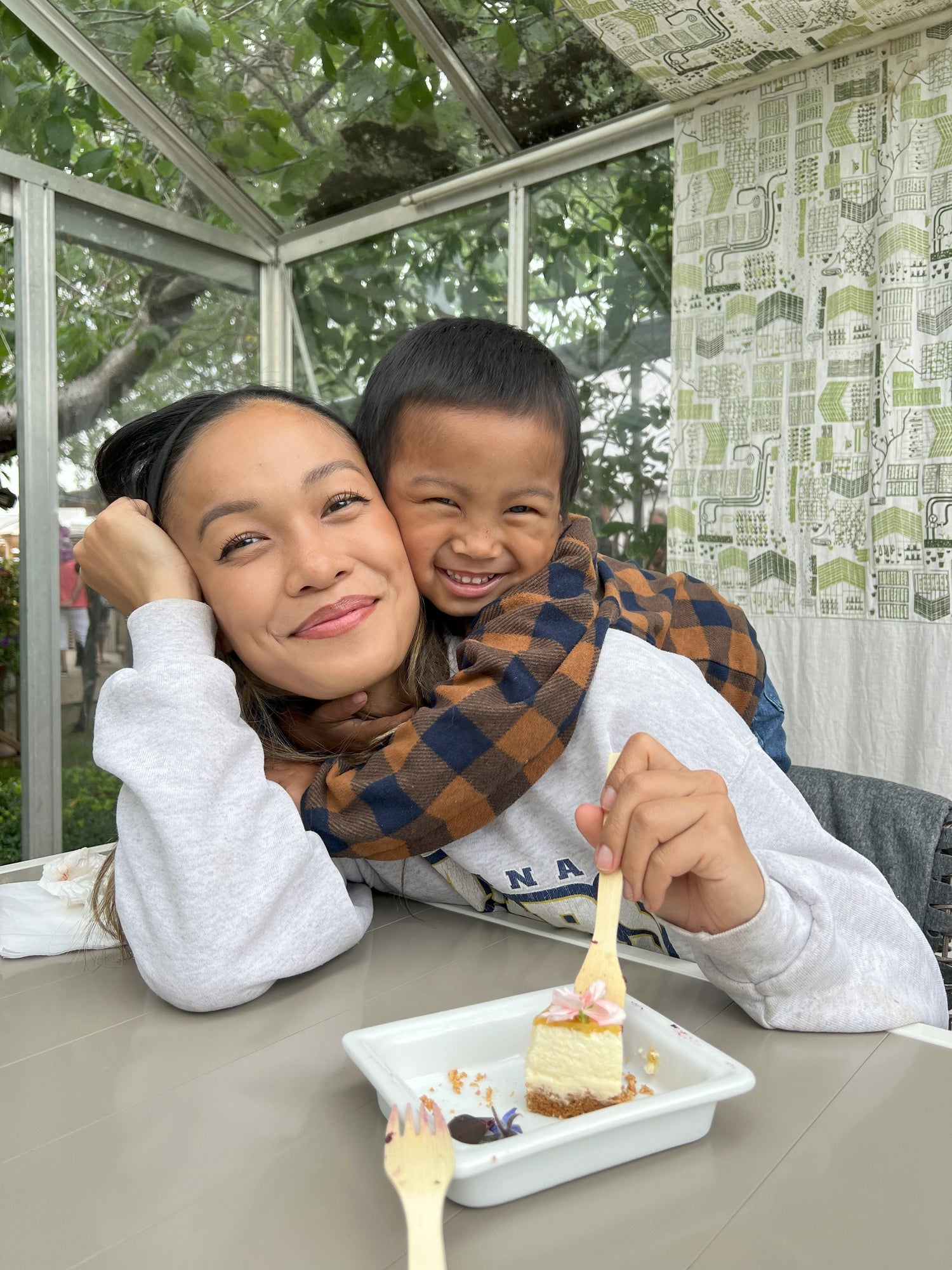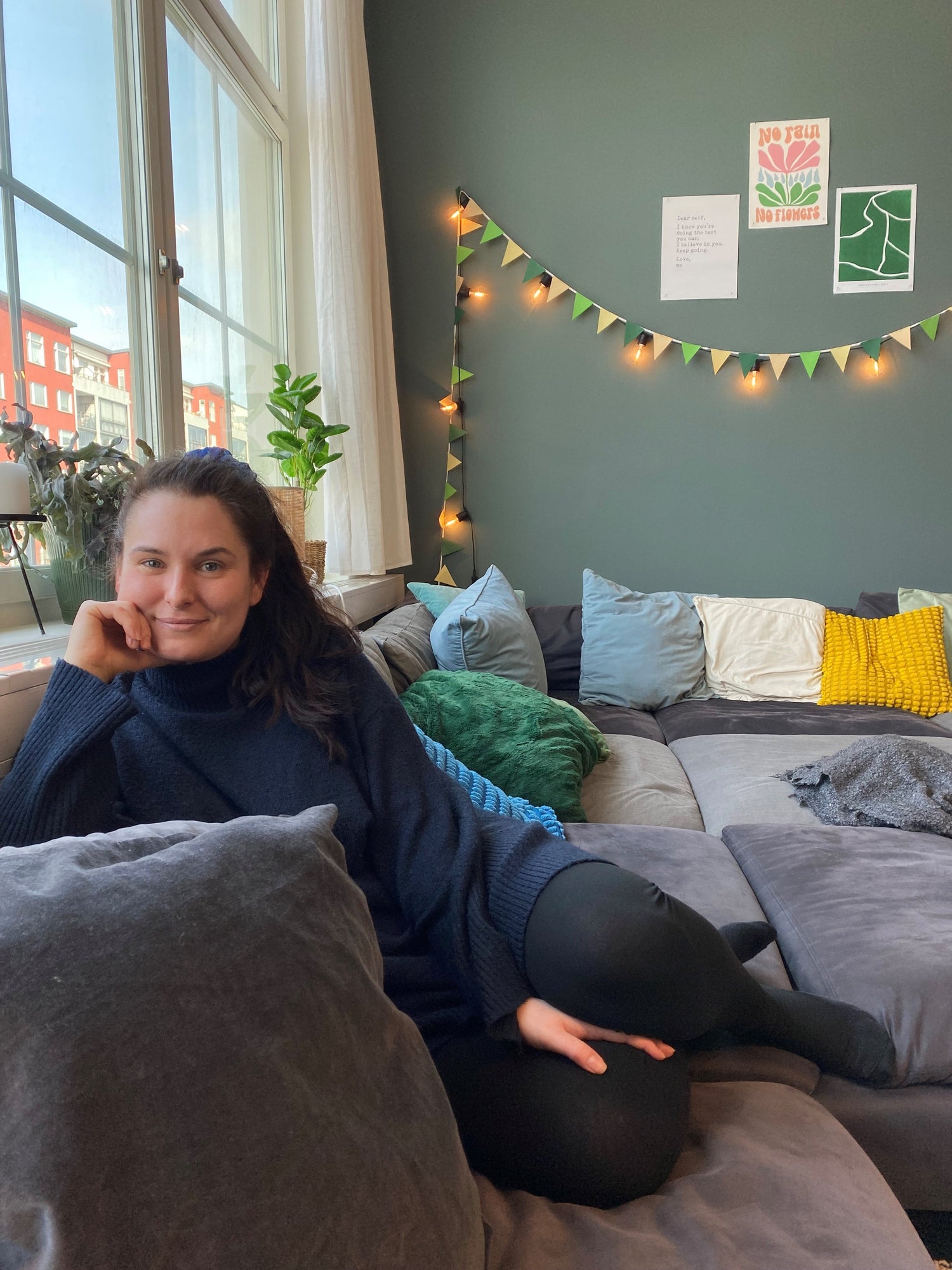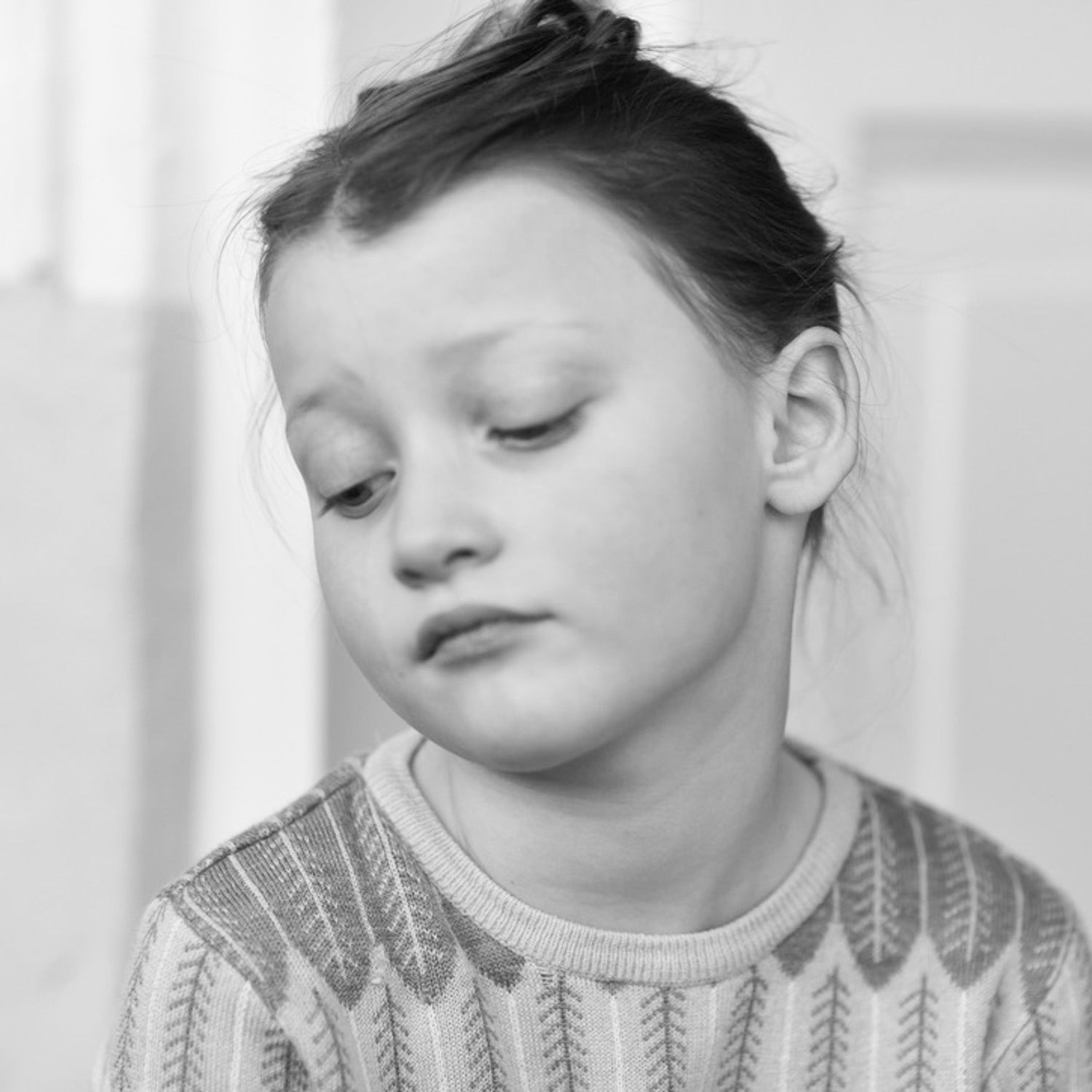Asabea Britton is a midwife, author, has blogged, influencer, runs the podcast "okrystat" together with her sister Opokua Britton and last but certainly not least, she will soon be a mother of three. We are big fans of both Britton sisters and their way of talking to children about feelings. In her professional role, and as a private person and mother, Asabea meets many different people, big and small, and occasionally touches on sensitive topics that touch the body. This week we talk about just that.
Asabea Britton is not afraid to have the talk

"You get to feel who the person is and put it on that level. I'm very straightforward as a person, and think that if you're going to talk about the vagina and vulva, you have to stick to the subject objectively. I am quite direct, but of course try to adapt to the person in front of me.”
Hi Asabea! How are you today?
I feel good. Yesterday I was extremely tired as I was earlier in the pregnancy. But last night I slept a lot and can't complain. Ready to get out of the house soon for the summer!
You work with some of life's big topics - pregnancy, fertility and upcoming parenthood. How do you talk to your patients about topics that may be difficult or sensitive? Is it different from private Asabea?
It obviously depends on what we are talking about and who you have in front of you. You get to feel who the person is and put it on that level. I'm very straightforward as a person, and think that if you're going to talk about the vagina and vulva, you have to stick to the subject objectively. I am quite direct, but of course try to adapt to the person in front of me.
Now I work in maternity care, where many women were not born in Sweden. They can sometimes be less open about talking about the body, but I'm straight up and tell it like it is. I usually say this - this is a big deal for you but not for me.
I'm probably quite a stereotype as a midwife. Have absolutely no problem talking secretion.
Children and adolescents, after all, are a different matter. You have worked at a youth clinic, how do you talk about things that can seem difficult with children and adolescents? For example, Feelings about the body and issues related to sexuality?
For my patients, I just make it clear and point out that you are the one who decides. Today I'm not doing anything you don't want and adapting the language accordingly. At youth reception, it is important to work like this, as young people are often uncomfortable in the situation. Mirror the person you're talking to! And that's hard, honestly it doesn't always work. But you have to show respect and show that it's not difficult for me.
I normalize and point out that here you decide, not me. Then of course there are limits, if you are very worried about your patient you may have to go a step further.
When I was young myself, the adults felt safe and non-judgmental at the youth reception. I try to be like that too. After all, they have chosen to get there themselves and have sought out another adult with whom they have chosen to talk, even if it is embarrassing or inconvenient.
At that age, everything is so big and new. Then it is wonderful to be a safe outside adult. One can ask direct questions without being intimidated and reaffirm that nothing you can say would shock me. I'm here for you.

"Maybe I didn't talk directly about the body with my parents in my teens, so I think about that a lot with my own children. My parents tried their way. Maybe I was a little earlier with some things than my mother was ready for. When she started asking, it was a little late.”
Has your way of talking about feelings about the body changed since you became a parent?
Maybe I didn't talk directly about the body with my parents in my teens, so I think about that a lot with my own children. My parents tried their way. Maybe I was a little earlier with some things than my mother was ready for. When she started asking, it was a little late.
Those in my environment who have parents who do not judge, where you can talk openly and tell stories, are themselves very natural with their bodies and with opening up about those subjects. I had an image of my mother that she never did anything wrong, so I didn't tell anything. I'm very keen on that now, to tell when things go wrong and when I've done wrong.
What do you want your sons, and future baby, to take with them in life about this particular thing?
I hope they will inherit my feeling of being comfortable in my body. I'm comfortable in my body, even that has taken some time to get here. I wish to be able to give them that - to be free in their nakedness and in their bodies. I rarely talk badly about my body, hopefully they can see that. Above all, we do not speak badly about our bodies and about ourselves in our family.
Some things are easy for some, and very difficult and challenging for others. This is especially true when it comes to how the body works. That is, how do you talk about the body and sexuality, topics that may seem elusive to others, just talkable and natural?
Children are aware of menstruation and childbirth. My son sometimes wants to watch the movie when he is born and it's so nice. He gets a little sad in the stage when he comes out and cries, he finds it a little difficult that the baby is sad. The fact that he comes out of the snipe is no problem, however. That's where we adults often project.
Yesterday, for example, my second son asked about sperm, how twins are made and egg division. I get so happy when he asks! Pregnancy opens up these questions and then it is important to be there and talk and normalize. If you yourself think it's hard, it will also be hard.
What I wanted to do with the book was to give parents the tools to talk. If you normalize births and how children are born at an early age, you can probably normalize the whole of childbirth in our society.
Talking about death is another matter. Many do not want to tell their children about pregnancies in case of miscarriage, but it is a good opportunity to talk to their children about the fragility of life. We chose to talk about it like we hope it's a baby, but we can't guarantee.
“Remind yourself that this is not embarrassing for your child. They haven't learned it. It may be embarrassing for you, but your child is unlikely to find the questions loaded and difficult.”
Speaking of projecting, which emotions - your own or your children's - do you find the most difficult to face?
It depends a little on the form of the day. It's probably harder to meet my own, I think. But it may also have to do with how they express their feelings. When I get frustrated, it's hard. One of my sons can be quite loud in his emotional expressions. It works most of the time, but sometimes if I'm tired I can get angry and frustrated. Then I get you deep into how I myself react to his feelings.
One thing I've noticed in my parenting that I need to work on is that I get frustrated when I find that the kids don't understand. I can recognize that from my father who got frustrated with me when I didn't understand things. It lies entirely with me and in my own demands on me.
It has really become easier to handle the children's emotions now that I have progressed in my role as a parent. In the beginning it was definitely more difficult. Then I could go into my son's feelings a lot, but now it's easier now not to go into crying and screaming. It is obviously more difficult when you are outside, because then you have to take in other people's thoughts. But here at home it feels good that he gets it out.
So yes, it's probably harder to face my own feelings - because that's what you think you should be able to control yourself.
We know you use the cards, do you have any advice for parents who are eager to start using a tool like this?
With my youngest child, it's mostly play and he gets to look at the cards and think it's exciting. There we introduce without requirements. With my five-year-old, he thinks it's more fun to ask. We present and then he gets to draw and guess what feeling it is and explain. He likes to hear examples of what I have done, when I was a child and did something difficult or embarrassing, so he can relate himself.
Then it varies how much he can take, it should be desire and not compulsion. Sometimes I put it out and they can take it if they want. It shouldn't be difficult and he gets to rule. We put on their level.

Do you have any tips that you would like to share with the Bonki parents? If you yourself find it a little difficult to talk about sexuality, relationships and the body?
Remind yourself that this is not embarrassing for your child. They haven't learned it. It might be embarrassing for you, but your child probably doesn't think the questions are loaded and difficult.
If it feels difficult, take help from books, cards, movies, there is so much to find! If you yourself have difficulty with the words, use someone else's instead. So it is not you who says or asks, but, for example, the book.
In short, the kids don't care... But you have the chance to set the tone!





